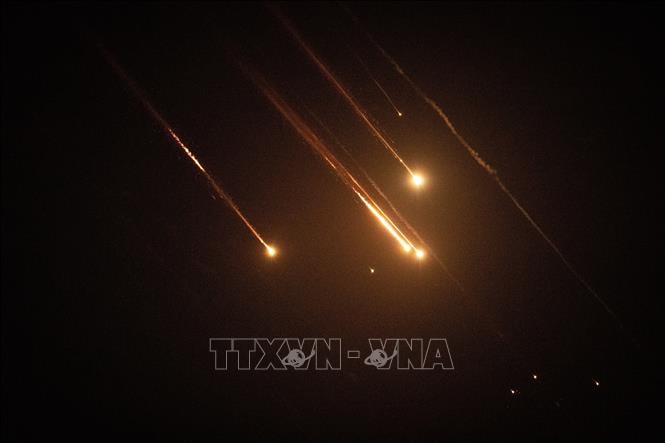On October 2, the European Union Aviation Safety Agency (EASA) advised all European airlines to avoid Iranian airspace following Tehran's missile attack on Israel.

The EASA statement said carriers should avoid Iranian airspace after Tehran launched a series of ballistic missiles at Israel. The advisory is valid until October 31. EASA will consider adjusting or withdrawing the advisory based on actual assessments, while emphasizing that it will continue to closely monitor the situation.
Previously, on September 28, EASA and the European Commission issued similar recommendations for Israeli and Lebanese airspace.
On the same day, facing the risk of escalating conflict in the Middle East, the Mexican government called on its citizens to immediately consider leaving Israel and Iran for safer places by commercial means.
The Mexican Foreign Ministry recommends that Mexican citizens in Israel and Iran contact their diplomatic missions as soon as possible due to the insecurity and risks in the two Middle Eastern countries.
The Mexican government calls on all parties to take immediate action to de-escalate the conflict in the Middle East, ensure a binding ceasefire and avoid further harm to civilians.
Last week, the Mexican Foreign Ministry also advised its citizens to leave Lebanon immediately.
According to statistics, more than 1,000 people have been killed and 1 million people have been forced to flee their homes in recent days due to escalating conflict in Lebanon.
Also on October 2, the Cuban Ministry of Foreign Affairs (MINREX) expressed concern about the tense developments in the Middle East, affecting regional stability and security.
The Cuban Foreign Ministry said that Israel's policies have led to a dangerous escalation of violence, and called for peace and negotiations for an immediate ceasefire to avoid further escalation of the conflict. In addition, Havana affirmed that the solution to the conflict "lies in the recognition of the State of Palestine on the borders defined in 1967 with East Jerusalem as its capital."
Meanwhile, Head of the Chinese Permanent Mission to the United Nations (UN) Fu Tong called on the UN Security Council to take immediate action to ease tensions, including making a clear and decisive demand for an immediate ceasefire in Gaza and for relevant parties to return to the political and diplomatic path.
Also on October 2, Jordanian Foreign Minister Ayman Safadi called for immediate and effective international action to prevent a serious escalation in the Middle East.
Speaking in a phone call with his British counterpart David Lammy, Foreign Minister Safadi urged an immediate and lasting ceasefire in the Gaza Strip and Lebanon, and an end to Israel's escalating measures and attacks in the occupied West Bank.
The head of Jordan's foreign ministry stressed that preventing escalation must be a regional and international priority; warned of the dire consequences of Israel's ground attack on Lebanon, as well as continued attacks in Gaza.
During the phone call, Mr. Safadi reiterated that Jordan will not be a battlefield for any side and will confront any threats to its security, stability and the safety of its citizens with all its capabilities.
In addition, the Jordanian Foreign Minister also highlighted the need to support the initiative of Lebanese interim Prime Minister Najib Mikati, assessing that this initiative is in line with the proposal of US President Joe Biden and his French counterpart Emmanuel Macron. He stated that Jordan fully supports Lebanon's security, sovereignty and the safety of its citizens, and stressed the need for an international campaign to provide humanitarian aid to Lebanon - a country facing the challenge of meeting the needs of more than 1 million displaced people.